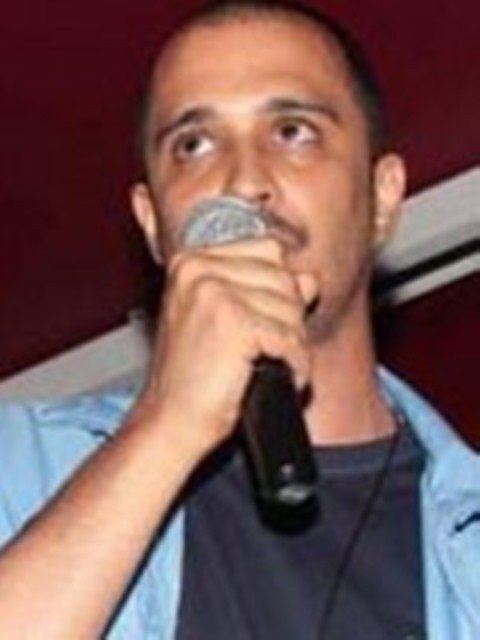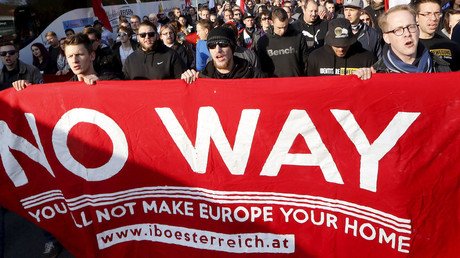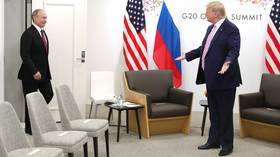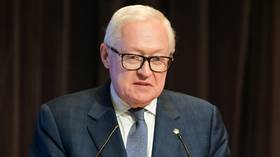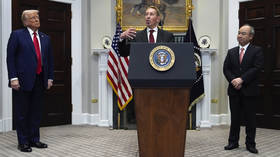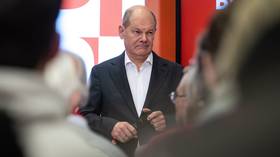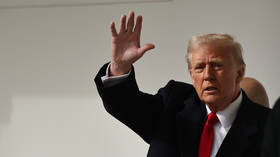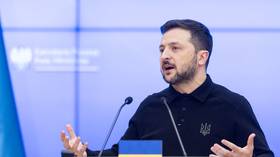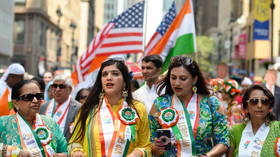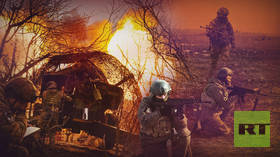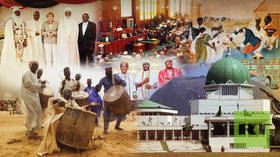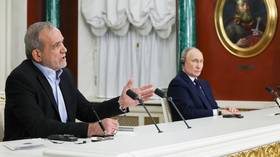Is Europe confronting the ghost of fascism past?
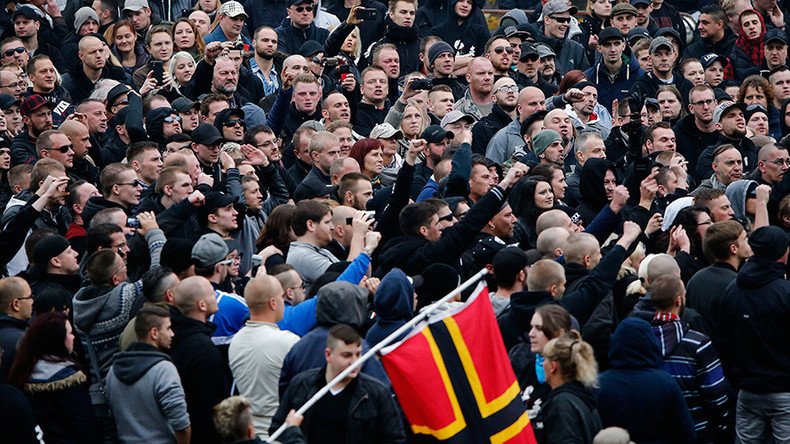
The ‘refugee crisis,’ nor the wars that have triggered it, shows no signs of abating anytime soon. Meanwhile, war as the single most important factor driving the crisis has been largely side-lined by the mainstream media, and this plays into the hands of right-wing sentiment.
This form of populism lays the blame of the crisis at the feet of the victims, the refugees, rather than the ones who have decimated the homelands of those heading to Europe (According to latest statistics, the numbers of refugees coming to Europe at the turn of 2016 are much greater than they were at the beginning of 2015).
Inevitably, as with any large-scale mass movement of people, the large numbers of people arriving to Europe has caused problems, both social and political. However, we should keep in mind such problems are not comparable to the refugees’ problems that caused them to flee their homelands in the first place.
One thing we can be sure about is that the problems which have occurred since the refugee crisis began have been magnified and distorted for purely political ends. Consider the example of Cologne, the consequence of which is that a hysterical form of racist nationalism, which we have seen before, has reared its ugly head in Europe once again. It has taken several forms, including manifesting itself in rural communities, street gangs, and of late into a political arm named the AFD in Germany.
With this in mind, I recently travelled to Germany to talk to a young Syrian refugee named Mohammed, a 19 year old Syrian from Aleppo, who has been living in Nuremburg for several months, waiting to be acknowledged by the system as a genuine refugee, which he is. I first met him in Serbia last summer as he was preparing to cross into Hungary, one of the EU’s Border countries within the Schengen area. He gave me some startling insights into what life had been like in Germany since his arrival, which was a far cry from what he’d though it would be.
Mohammed had been studying in Aleppo before the war had broken out and wanted to do the same now in Germany. He was taking steps to learn German. When I saw him for the first time in Nuremberg after many months, the disappointment in his face and the strain of being forced into a mundane daily routine while he waited to be ‘processed’ had clearly taken its toll. He seemed as if he had been more optimistic while outside of the EU in Serbia.
He explained that for months he had been living with many other predominantly Syrian refugees in a building that used to be a school. At the time of writing, Mohammed has since been given accommodation in a flat with several other refugees. But his first few initial months in Germany were not without their problems.
Quand @Charlie_Hebdo_ créé la 4ème dimension de l'ignominie, la bassesse et la répugnance.
— معتز البلوة (@motazzb) January 13, 2016
🖕🏻 pic.twitter.com/PofXJWXlBd
Refugees in Germany live on a state handout of a few Euros per month [refugees in Germany can expect to receive 359 euro (around $400) a month]. While the government makes a decision as to whether they are a genuine case, travel is limited and it is not possible to take up employment. It’s also virtually impossible as a refugee to take up any educational courses or the like while they wait.
This state of affairs is taking its toll on the mental health of those refugees now playing the waiting game, and who have already been through significant trauma on their journey.
As if that wasn’t enough, Mohammed also tells me that at one point he was scared for his life while living in the center, where had previously stayed, relaying the story as to how one knife-wielding man threatened to kill him after a trivial dispute.
Moreover, he also told me that among the genuine refugees he had stayed with, a small handful had been boasting about being part of terror groups like Al Nusra and also Daesh [Islamic State] back in Syria. He said they share pictures on their phones and laugh about it.
In a brief report I compiled for RT last week, he talked about these revelations, the fact that many death squad fighters had used the refugee route to get to Europe, and also about the fact that these people were the cause of him leaving Syria in the first place. People often assume he is the same as such terrorists, when he is in fact the opposite; this is a source of great indignation to Mohammed, as well as for the great majority of other refugees, too.
My next stop was Berlin, where I had arranged an interview with one of the senior figures of AFD (Alternative for Deutschland), a political party that while still on the fringes, hovering at around 12 percent, is nonetheless gaining some ground as a result of the constant fearmongering regarding the influx of refugees.
George Pazderski, former Deputy Chief of the Combined Planning Group of NATO’s Joint Force Command, and one-time adviser to US General David Petraeus, is now a leading figure at the AFD. I met him at the AFD headquarters, and with a few of his own advisers hanging around, had the intention of getting his party’s view from the horse’s mouth, so to speak.
Without disclosing too much of what was said, as the full interview will be part of a future film, I can summarize what Pazderski was willing to offer.
German police should have right to shoot refugees illegally crossing border – AfD leader https://t.co/yrqa1EUDNXpic.twitter.com/SfYnobWCtO
— RT (@RT_com) February 1, 2016
As a response to my first question, Pazderski distanced himself from recent comments made by party leader Frauke Petry that suggested German police resort to shooting migrants if they tried to enter Germany illegally. Rather than denounce it, he suggested that the comment was a mistake, an ill-judged choice of words and badly timed, rather than the fascistic statement that it was.
It was clear throughout the interview that the AFD view the influx of refugees into Germany through an entirely racial and cultural lens. The politics of war is largely ignored. Perhaps it’s understandable from a figure who once advised US General Petraeus, himself a war criminal answerable to a bigger war criminal George W Bush.
Instead of a serious interview, I found myself defending the entire Arab diaspora of some 230 million, from charges claiming they are unable and unwilling to assimilate into Western culture -whatever that may mean. The usual claims of Arab men and North Africans all being sexual predators we also part of Pazderski’s well-rehearsed spiel. The only difference between his party and the neo-Nazi gangs on the street is that the AFD use more sophisticated language to offer a veneer of respectability to their views.
The contrast between the AFD views, which suggest minorities are uncivilized, and the civility I was met with at their HQ made me feel a little queasy. At one point during the interview it was suggested that I myself - because I appeared educated - was a different sort of immigrant from those unable to assimilate into Western culture.
I didn’t take his comments as a compliment, not least of all because I am not an immigrant. The fact that many of the Syrians in Germany are educated, just like other migrants who keep the country running, must have not made it to his brief.
The vast majority of refugees assimilates into society, and contributes to the economy; this is a fact not worthy of consideration in the sweeping generalizations made by the likes of the AFD. What they are defending and whom they are defending it remains unclear even to them. Like so many other European states, this knee-jerk nationalism gives European and Western leaders a free pass regarding their own hand in perpetuating the wars which have led to the refugee crisis.
My final stop in Germany was in a village named Jamel in Northern Germany, not very far from the Baltic Sea. Jamel is known simply as a ‘Nazi village’ and it’s not given that name for dramatic effect. I’ve watched several YouTube videos of people attempting to visit and talk to the locals in Jamel with little success.
When entering the village it’s not hard to see why. Third Reich iconography is all over the place, the most striking example was to be seen painted on the side of a barn. It was the popular image of a rural German family, a striking tall man with his wife and small child, all of them wearing farming clothes.
Hitler’s plan to restore pride, build up Germany, and provide ordinary German’s with a car and other benefits of socialism is clearly something that appeals to Jamel’s rural community.
Also appealing to them though, was Hitler’s loathing of minorities and Jews which has also become a hallmark of Jamel. The people in the village didn’t even acknowledge me, and barely did the same to the tall blonde German fixer who was with me. On the one hand the people of Jamel have been pestered by many in the media, and so to some extent their reaction to our visit was justified and presumably perceived in the same way. But people visit because they want to understand how such a pernicious form of nationalism can still appeal to country folk. I didn’t see it for myself because we were told to leave.
In the end there is no way to truly rationalize or understand what simply does not make sense.
Racism is based on pseudo-science. The same fascism we are seeing aimed at refugees today has chilling echoes of the very recent past. The street gangs, the AFD, and people in places like Jamel all distance themselves from each other. But the links between them all are obvious. They feed from each other, directly and indirectly.
My own view is that unless we start to challenge the current narrative regarding the refugee crisis, we are simply a stone’s throw away from the kind of fascism we saw develop in Germany in the recent past as well as elsewhere in Europe. The danger here is that so long as European states continue to capitulate to the right, street fascism will find more and more of a safe home in mainstream politics. This is the real danger that such casual scapegoating of entire people will become normalized once again in political parlance, as we’ve seen in the past.
The statements, views and opinions expressed in this column are solely those of the author and do not necessarily represent those of RT.
